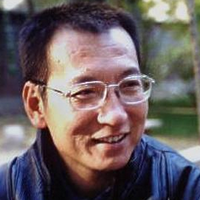On the stage in Oslo City Hall today, there will be an empty chair for the winner of the Nobel Peace Prize, Liu Xiaobo. The United States government, which will be represented at the ceremony by its ambassador to Norway, Barry White, criticized China's refusal to release the imprisoned Liu in order to attend the ceremony. The House of Representatives also passed a resolution calling for the dissident to be freed, while the Obama administration made its position clear in no uncertain terms:
But in addition to the empty chair on the stage, there will also be some empty chairs in the audience, in the section reserved for the diplomatic corps, as other governments heeded Beijing's call for a boycott of the prize ceremony. This has made for an interesting test of China's rising international clout, as its diplomats around the world have been delivering demarches describing Liu as a "criminal" and the Nobel Peace Prize committee's decision as unwonted interference in China's domestic affairs.
How successful was Beijing's campaign, and what lessons might we draw from it?

